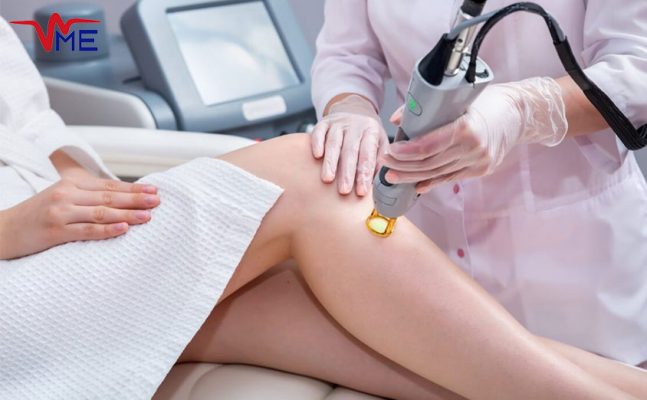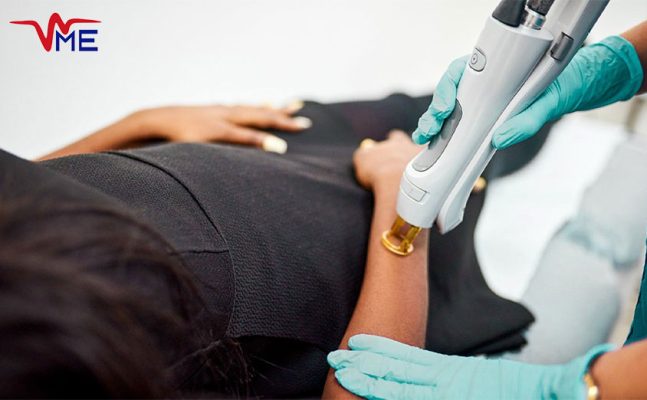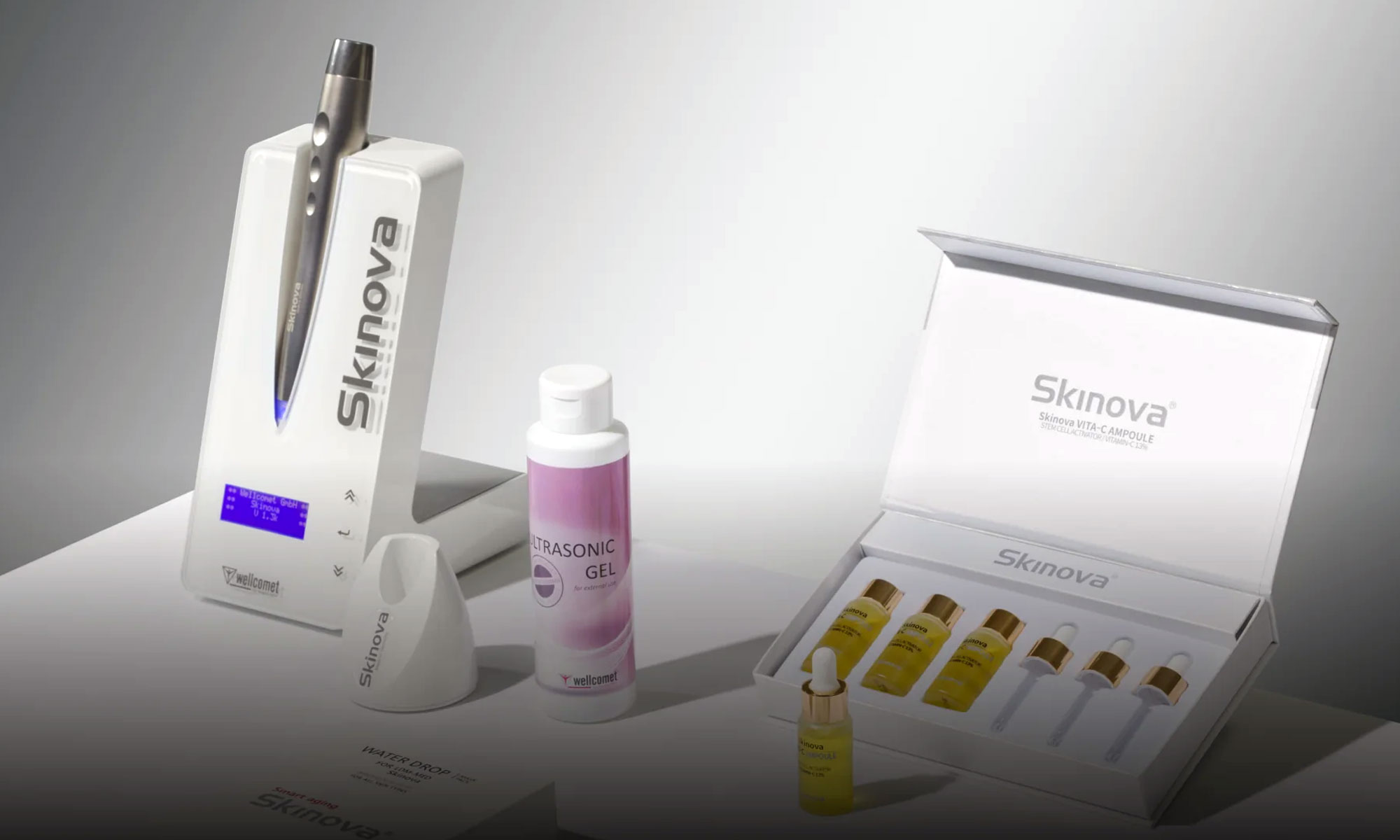Treatment
Hair Thickening After Laser: Understanding the Causes and Solutions
Laser hair removal is a popular and effective method for achieving smooth, hair-free skin. However, some individuals may experience an unexpected side effect: hair thickening after laser treatments. This phenomenon, known as paradoxical hypertrichosis, can be surprising and frustrating for those seeking a permanent solution to unwanted hair. If you’re in Dubai or the UAE and have noticed thicker hair regrowth following your laser sessions, you’re not alone. Understanding the reasons behind this occurrence and exploring effective solutions can help you achieve the results you desire.
Paradoxical hypertrichosis can be influenced by various factors, including the type of laser used, individual skin and hair characteristics, and even hormonal imbalances. In regions like Dubai, where diverse skin types are common, it’s crucial to choose a reputable clinic with experienced professionals who can tailor treatments to your specific needs. Additionally, knowing how to manage and mitigate this condition through proper aftercare and follow-up treatments is essential.
In this comprehensive guide, we’ll delve into the causes of hair thickening after laser hair removal and provide actionable tips to prevent and address this issue. We’ll also highlight the latest advancements in laser technology and recommend top clinics in the UAE that offer personalized and effective laser hair removal services. Whether you’re a long-time resident or a visitor to Dubai seeking aesthetic treatments, this article will equip you with the knowledge to make informed decisions and achieve the best possible outcomes for your skin and hair.
The Causes of Hair Thickening After Laser: What You Need to Know
Laser hair removal is widely celebrated in Dubai and across the UAE for its ability to provide long-lasting smoothness and reduce unwanted hair growth. However, some individuals encounter the perplexing issue of hair thickening after laser treatments, known as paradoxical hypertrichosis. Understanding the causes behind this phenomenon is essential for effective management and achieving the desired results.
Here are the main causes of hair thickening after laser:
-
Type of Laser and Settings:
- The type of laser used and its settings play a crucial role in the treatment outcome. Certain wavelengths are more suitable for specific skin and hair types. Incorrect settings can lead to ineffective treatment and paradoxical hair growth.
-
Skin and Hair Type:
- Individuals with lighter skin and darker hair typically respond better to laser treatments. Those with darker skin may require different laser settings to avoid adverse effects and unexpected hair thickening.
-
Hormonal Influences:
- Hormonal imbalances, such as those related to thyroid issues or polycystic ovary syndrome (PCOS), can exacerbate hair thickening. Hormones significantly influence hair growth cycles and density.
-
Genetic Predispositions:
- Genetic factors can affect how one’s hair follicles respond to laser treatments. Some individuals are genetically predisposed to experience paradoxical hypertrichosis.
-
Treatment Area:
- The area of the body being treated can also influence the likelihood of hair thickening. Certain areas, like the face, are more prone to paradoxical hair growth due to the sensitivity and density of hair follicles.
-
Number of Sessions:
- Inadequate number of laser sessions can result in incomplete hair follicle destruction, leading to regrowth that is thicker and denser.
-
Clinic Expertise:
- In regions like Dubai, with a highly diverse population, it’s crucial to seek out specialized clinics with experienced professionals. They can tailor treatments to individual needs, minimizing the risk of hair thickening.
Understanding these causes can help you choose the right clinic and treatment plan to achieve the best results. Whether you’re a resident or a visitor to Dubai, being informed empowers you to make decisions that ensure smoother, hair-free skin without the unwanted side effects.

The Role of Skin and Hair Types in Laser Reactions
Laser hair removal is a popular choice in Dubai and across the UAE, offering a long-term solution to unwanted hair. However, the effectiveness of laser treatments can vary significantly depending on an individual’s skin and hair type. Understanding these variations is crucial for achieving optimal results and minimizing potential side effects.
Skin Types:
- Fitzpatrick Skin Types:
- Dermatologists classify skin into six types based on the Fitzpatrick scale, ranging from very fair (Type I) to very dark (Type VI). Each type reacts differently to laser treatments. For example, fair skin with dark hair (Type I-III) generally responds well to most laser wavelengths, whereas darker skin (Type IV-VI) requires specific lasers, like Nd
, to safely and effectively target hair follicles without damaging the skin.
- Dermatologists classify skin into six types based on the Fitzpatrick scale, ranging from very fair (Type I) to very dark (Type VI). Each type reacts differently to laser treatments. For example, fair skin with dark hair (Type I-III) generally responds well to most laser wavelengths, whereas darker skin (Type IV-VI) requires specific lasers, like Nd
- Melanin Levels:
- Higher melanin levels in darker skin types absorb more laser energy, increasing the risk of burns or pigmentation changes. Therefore, it’s crucial to use appropriate laser settings and devices tailored to these skin types.
Hair Types:
- Hair Color and Thickness:
- The ideal candidates for laser hair removal are those with dark, coarse hair. Dark hair contains more melanin, which absorbs the laser energy more effectively, leading to better hair reduction. Light or fine hair, including blonde, red, or gray, has less melanin and is more challenging to treat.
- Growth Cycles:
- Hair growth cycles also play a role in laser effectiveness. Laser treatments target hair in the active growth phase (anagen phase). Since not all hair is in the same phase simultaneously, multiple sessions are required for comprehensive results.
Choosing the Right Clinic:
- In Dubai and the UAE, where the population is diverse, selecting a clinic with experienced professionals who understand the nuances of different skin and hair types is essential. A personalized approach ensures safety and maximizes the effectiveness of the treatments.
By understanding the role of skin and hair types in laser reactions, individuals can make informed decisions and achieve smoother, hair-free skin with fewer complications. Whether you’re a resident or a visitor in Dubai, choosing the right laser treatment tailored to your specific needs is key to successful hair removal.
Laser Device Settings and Their Impact on Hair Thickening
Laser hair removal is a popular and effective method for achieving smooth, hair-free skin in Dubai and across the UAE. However, an unexpected issue that some individuals encounter is hair thickening after laser treatments, known as paradoxical hypertrichosis. Understanding how laser device settings can impact this phenomenon is crucial for achieving the desired results and avoiding unwanted side effects.
Importance of Correct Laser Settings:
- Wavelength Selection:
- Different lasers operate at different wavelengths, each suited for specific skin and hair types. For instance, the Alexandrite laser (755 nm) is effective for lighter skin tones, while the Nd
laser (1064 nm) is safer for darker skin tones. Incorrect wavelength selection can lead to inadequate hair removal or stimulate hair growth.
- Different lasers operate at different wavelengths, each suited for specific skin and hair types. For instance, the Alexandrite laser (755 nm) is effective for lighter skin tones, while the Nd
- Energy Levels:
- The energy level, or fluence, must be appropriately set based on the individual’s skin type and hair characteristics. Too low energy levels may not effectively damage the hair follicle, leading to potential hair thickening. Conversely, excessively high energy levels can cause skin burns and hyperpigmentation.
- Pulse Duration:
- The pulse duration should be adjusted to match the hair thickness. Thicker hair requires longer pulse durations to ensure the energy penetrates deeply enough to target the follicle effectively. Incorrect pulse duration can lead to incomplete treatment and paradoxical hair growth.
- Spot Size:
- The size of the laser spot affects the treatment depth and coverage area. Larger spot sizes are generally more effective for deeper penetration and treating larger areas. However, if not correctly matched to the treatment area, it can result in uneven hair removal.
Choosing the Right Clinic:
- In Dubai and the UAE, where the population is diverse, selecting a clinic with experienced professionals who understand the nuances of laser device settings is essential. Personalized treatments tailored to individual needs ensure the best results and minimize the risk of hair thickening.
By understanding the impact of laser device settings on hair thickening, individuals can make informed decisions and achieve smoother, hair-free skin with fewer complications. Whether you’re a resident or a visitor in Dubai, choosing the right laser treatment tailored to your specific needs is key to successful hair removal.
Hormonal and Genetic Factors Influencing Hair Thickening
Laser hair removal is a sought-after treatment in Dubai and across the UAE, known for its effectiveness in reducing unwanted hair growth. However, some individuals may experience hair thickening after laser treatments, a phenomenon known as paradoxical hypertrichosis. Understanding the hormonal and genetic factors that influence this unexpected outcome is essential for effective management and achieving desired results.
Hormonal Factors:
- Androgen Levels:
- Androgens, such as testosterone, play a significant role in hair growth. Elevated levels of these hormones can lead to increased hair thickness and density. Conditions like polycystic ovary syndrome (PCOS) and adrenal hyperplasia are examples where androgen levels are typically higher, potentially causing paradoxical hair growth after laser treatments.
- Thyroid Imbalances:
- Thyroid hormones regulate various bodily functions, including hair growth. Hypothyroidism or hyperthyroidism can disrupt the hair growth cycle, leading to abnormal hair thickening. Individuals with thyroid imbalances might experience unexpected hair regrowth after laser hair removal.
- Pregnancy and Menopause:
- Hormonal changes during pregnancy and menopause can also affect hair growth patterns. These fluctuations can cause temporary or permanent changes in hair density and thickness, influencing the effectiveness of laser treatments.
Genetic Factors:
- Genetic Predisposition:
- Genetics play a crucial role in determining hair characteristics. Individuals with a family history of dense or thick hair are more likely to experience similar traits. Genetic predisposition can influence how one’s hair follicles respond to laser treatments, potentially leading to paradoxical hypertrichosis.
- Ethnic Variations:
- Different ethnic backgrounds can exhibit varying hair growth patterns and responses to laser treatments. Understanding these genetic differences is vital for tailoring effective laser hair removal strategies.

Choosing the Right Clinic:
- In Dubai and the UAE, selecting a clinic with experienced professionals who understand the hormonal and genetic factors affecting hair growth is essential. Personalized treatments that consider these variables ensure optimal results and minimize the risk of hair thickening.
By understanding the hormonal and genetic factors influencing hair thickening, individuals can make informed decisions and achieve smoother, hair-free skin with fewer complications. Whether you’re a resident or a visitor in Dubai, choosing the right laser treatment tailored to your specific needs is key to successful hair removal.
Preventive Measures for Hair Thickening After Laser
Laser hair removal is a preferred choice for many in Dubai and across the UAE, offering a long-lasting solution to unwanted hair. However, an uncommon but notable side effect is hair thickening after laser treatments, known as paradoxical hypertrichosis. To help you achieve the smooth, hair-free skin you desire, it’s essential to understand and implement preventive measures. At Wellcometme, we are committed to providing top-notch laser treatments tailored to your needs.
Understanding Paradoxical Hypertrichosis: Paradoxical hypertrichosis is a condition where hair grows back thicker and denser after laser treatment. It can be influenced by various factors, including incorrect laser settings, hormonal imbalances, and genetic predispositions.
Preventive Measures:
- Choose the Right Clinic:
- Selecting a reputable clinic with experienced professionals is crucial. At Wellcometme, our experts are well-versed in the latest laser technologies and tailor treatments based on individual skin and hair types to minimize the risk of hair thickening.
- Proper Laser Settings:
- Ensuring the correct laser settings is vital. Our specialists at Wellcometme use advanced equipment and customize the wavelength, energy levels, and pulse duration to suit your specific needs, reducing the chances of paradoxical hypertrichosis.
- Pre-Treatment Consultation:
- A thorough pre-treatment consultation can help identify potential risk factors such as hormonal imbalances or genetic predispositions. At Wellcometme, we assess your medical history and hair growth patterns to create a personalized treatment plan.
- Post-Treatment Care:
- Following proper post-treatment care instructions is essential. Our team at Wellcometme provides detailed aftercare guidelines to ensure optimal results and prevent adverse effects, including hair thickening.
- Regular Follow-Ups:
- Scheduling regular follow-up sessions allows for monitoring and adjusting the treatment plan as needed. Wellcometme offers continuous support and follow-up appointments to ensure the best outcomes.
By understanding and implementing these preventive measures, you can minimize the risk of hair thickening after laser treatments. At Wellcometme, we are dedicated to providing exceptional care and customized solutions to help you achieve smooth, hair-free skin. Whether you’re a resident or a visitor in Dubai, trust Wellcometme for safe and effective laser hair removal treatments.
Is Hair Thickening After Laser Temporary or Permanent?
Laser hair removal is a highly sought-after treatment in Dubai and across the UAE, known for its ability to reduce unwanted hair growth effectively. However, some individuals experience an unexpected side effect: hair thickening after laser treatments, also known as paradoxical hypertrichosis. This phenomenon raises the question: is hair thickening after laser temporary or permanent?
Paradoxical hypertrichosis refers to the paradoxical growth of thicker, darker hair following laser hair removal sessions. This condition, although rare, can be concerning for those seeking a smooth, hair-free appearance. Understanding the nature of this side effect and its duration is crucial for effective management.
The good news is that in most cases, hair thickening after laser treatments is temporary. The hair follicles can sometimes enter a stimulated growth phase due to the laser’s thermal effects. This response can be influenced by various factors, including the individual’s skin and hair type, the laser settings used, and hormonal imbalances. Over time, with continued treatment and proper adjustments, the hair growth usually stabilizes and decreases in thickness.
For some individuals, multiple laser sessions are required to target hair follicles effectively and achieve the desired results. It’s essential to follow the recommended treatment schedule and attend follow-up appointments to monitor progress and make necessary adjustments. Consulting with a skilled and experienced practitioner is vital. In Dubai and the UAE, choosing a reputable clinic with professionals who understand the nuances of laser hair removal can significantly reduce the risk of long-term side effects.
While hair thickening may persist for some individuals, it’s generally not permanent. With the right approach and continuous treatment, most people will experience a reduction in hair density and thickness over time. If you encounter this issue, communicate openly with your laser technician to tailor the treatment plan to your specific needs.
In conclusion, while hair thickening after laser hair removal can be a temporary side effect, it is typically manageable and resolves with ongoing treatment. By choosing a knowledgeable and experienced provider in Dubai or the UAE, you can ensure the best possible outcomes for your laser hair removal journey.

Doctors’ Recommendations for Preventing Hair Thickening
Laser hair removal is a favored cosmetic treatment in Dubai and across the UAE, offering a solution for long-term hair reduction. However, some individuals experience the unexpected side effect of hair thickening after laser treatments, known as paradoxical hypertrichosis. To help you achieve optimal results and avoid this issue, here are doctors’ top recommendations for preventing hair thickening after laser treatments.
1. Choose the Right Clinic:
Selecting a reputable clinic with experienced professionals is crucial. In Dubai, numerous clinics offer laser hair removal, but it’s essential to choose one with a track record of success. Qualified practitioners can tailor treatments to your specific skin and hair type, reducing the risk of adverse effects like hair thickening.
2. Proper Laser Settings:
Doctors emphasize the importance of using the correct laser settings. This includes the appropriate wavelength, energy level, and pulse duration tailored to your skin and hair characteristics. Inaccurate settings can lead to ineffective treatment and potential hair thickening. Ensure your provider uses advanced, well-maintained equipment and adjusts the settings based on your individual needs.
3. Pre-Treatment Assessment:
A thorough pre-treatment assessment is vital. Your doctor should evaluate your medical history, skin type, and hair characteristics. Conditions such as hormonal imbalances or genetic predispositions should be identified and managed appropriately to minimize the risk of paradoxical hypertrichosis.
4. Follow-Up Appointments:
Regular follow-up appointments are essential for monitoring your progress and adjusting the treatment plan if necessary. Consistent communication with your provider helps address any concerns promptly and ensures the treatment is effective.
5. Adhere to Aftercare Instructions:
Post-treatment care plays a significant role in preventing hair thickening. Follow your doctor’s aftercare instructions meticulously. This might include avoiding sun exposure, using recommended skincare products, and scheduling maintenance sessions as advised.
6. Address Hormonal Imbalances:
If you have conditions like polycystic ovary syndrome (PCOS) or thyroid disorders, managing these hormonal imbalances is crucial. Doctors recommend working with a specialist to treat these underlying issues, which can significantly impact hair growth patterns.
By following these recommendations, you can minimize the risk of hair thickening after laser treatments and achieve smoother, hair-free skin. Trusting experienced professionals and adhering to their advice ensures the best outcomes for your laser hair removal journey in Dubai and the UAE.
Achieving Optimal Results in Laser Hair Removal
Laser hair removal is an increasingly popular choice in Dubai and across the UAE, providing a long-term solution to unwanted hair. However, the phenomenon of hair thickening, known as paradoxical hypertrichosis, can be a perplexing and frustrating side effect for some individuals. By understanding the causes and implementing preventive measures, you can minimize this risk and achieve smoother, hair-free skin.
Choosing the right clinic is paramount. In a diverse region like Dubai, selecting a clinic with experienced professionals who can tailor treatments to your specific skin and hair type is crucial. Qualified practitioners at reputable clinics can adjust laser settings accurately, ensuring the appropriate wavelength, energy level, and pulse duration to suit your individual needs. This customization reduces the risk of adverse effects, including hair thickening.
A thorough pre-treatment assessment is essential. This evaluation should include a review of your medical history, skin type, and hair characteristics. Identifying and managing potential risk factors such as hormonal imbalances or genetic predispositions can significantly impact treatment outcomes. Regular follow-up appointments allow for monitoring progress and making necessary adjustments to the treatment plan.
Adhering to aftercare instructions is equally important. Following your doctor’s guidelines meticulously can prevent complications and enhance the effectiveness of the treatment. This may include avoiding sun exposure, using recommended skincare products, and scheduling maintenance sessions as advised.
Managing hormonal imbalances is another critical aspect. Conditions like polycystic ovary syndrome (PCOS) or thyroid disorders can influence hair growth patterns. Working with a specialist to address these underlying issues can reduce the likelihood of paradoxical hypertrichosis.
While hair thickening after laser treatments can be a temporary side effect, it is typically manageable and resolves with ongoing treatment. By choosing a knowledgeable and experienced provider in Dubai or the UAE, you can ensure the best possible outcomes for your laser hair removal journey. Trusting experienced professionals and adhering to their advice guarantees smoother, hair-free skin with fewer complications.
In conclusion, understanding the causes of hair thickening after laser treatments and implementing preventive measures are key to achieving optimal results. Whether you are a resident or a visitor in Dubai, being informed empowers you to make decisions that ensure smoother, hair-free skin without the unwanted side effects. By following doctors’ recommendations and choosing the right clinic, you can enjoy the benefits of laser hair removal and maintain beautiful, smooth skin.




It’s fascinating to learn how laser treatments can contribute to hair thickening. A great resource for those exploring hair care solutions!